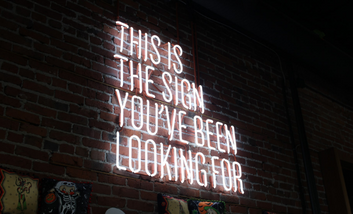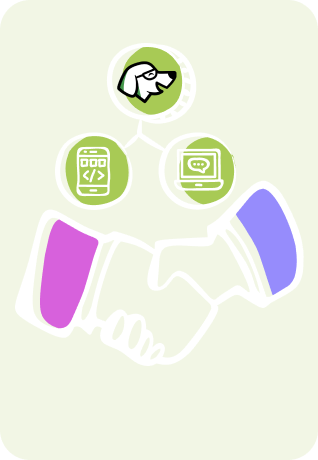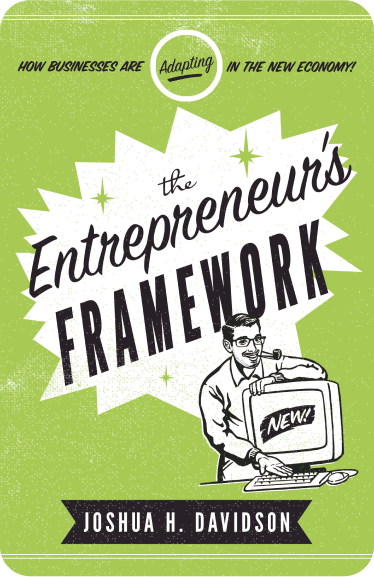Recently, ChatGPT has been making headlines for a number of reasons. Universities have been dealing with a flood of students using it to write essays, for example. However, when it comes to ChatGPT and customer service, the future is looking bright.
There have been claims that this new technology will reinvent whole industries, change Google search forever, and can possibly even be a threat to democracy.
In this post, we will avoid the hype and speculation and look at what many corporations and startups are already doing with ChatGPT.
Let’s take a look!
The ChatGPT Explosion
A lot of this hype is coming from the fact that ChatGPT has come onto the scene in a major way. In just 5 days, it gained over 1 million users. Keep in mind that even social media major player Instagram took 5 months to achieve the same success.
With ChatGPT, users can write everything from college essays to rap to code. You can also ask it questions and recieve answers.
In the general economic downturn, it also appears to be where investors are headed.
According to the tech industry firm PitchBook, investors have been shifting their attention away from cryptocurrency and other types of once hot businesses. Instead, they are focusing on generative AI startups.
It’s looking like this could potentially have profound implications, way beyond just being a hyped new thing. Also, as ChatGPT has so many potential uses, there is a lot of room for innovation and disruption using it.
Let’s take a look at what is behind this breakthrough and how ChatGPT is being used in cusomer service.
What is ChatGPT and What is GPT-3?
ChatGPT is a conversational language model. It has been trained to create human-like and relevant responses to any given input.
GPT stands for Generative Pretrained Transformer. This technology is based on the GPT-3 model developed by Open AI.
That raises the question, what exactly is GPT-3?
According to ChatGPT itself:
GPT-3 (Generative Pretrained Transformer 3) is a state-of-the-art language processing model developed by OpenAI. It is a type of artificial intelligence (AI) called a neural network, designed to simulate how the human brain processes information.
It became popular rapidly for several reasons. One of those is that it just works well. In the past, AI-Generated content had a reputation for being kind of off.
If you present GPT with any prompt, there is a high probability that it will produce a relevant answer that looks like a human could have composed it.
Also, the platform is not jammed with sponsored links or intrusive ads. Not only were people intrigued by the AI itself and wanted to discover what it could do, they enjoyed the process of using it.
So, What Does This Mean For The World of ChatGPT and Customer Service?
Since its early days, ChatGPT has shown tremendous progress. While it definitely has limits, which we will explore in this post, it doesn’t mean it couldn’t benefit businesses now.
Here is what Zain Kahn, Head of Marketing at Prequel had to say about his experience using the AI.
But how good are the answers? I'd rank it as a 5/10.
— Zain Kahn (@heykahn) December 5, 2022
The equivalent of an SEO marketer with 1-2 years of experience earning around $50k/year.
Not excellent, but definitely more competent than an SEO intern.
So, what exactly can this technology do? ChatGPT, powered by GPT-3.5 is able to:
-Generate realistic and generally accurate responses to custom questions
-Adapt to new information users type into the chat
-Engage in conversations about varied topics
-Process text based tasks such as translation and responding to questions
In fact, Meta, Canva, Shopify, and a number of other companies are already making use of the technology that this AI runs on in their customer service chatbots.
AI Has Been Popular In Customer Service For Some Time
If you have ever made a return to a Shopify seller or reset your password on Canva, you have interacted with this type of AI language model before. Most of us have, even if we didn’t realize it or think about it.
Right now, Ada, a Toronto-based company that automates 4.5 billion customer service interactions, has actually partnered with GPT creator Open AI. Together, Open AI and Ada want to work together to make these customer service chatbots more accurate and helpful.
And Ada and OpenAI are not alone. This has also been a hotbed of activity for startups, with somewhat limited success so far. Many startups, including Zoho and Levity AI, have developed bots and voice assistants geared toward helping companies reduce costs and make consumer interactions more expedient.
In fact, Venture Capitalist interest and investment and generative AI has soared since 2017.
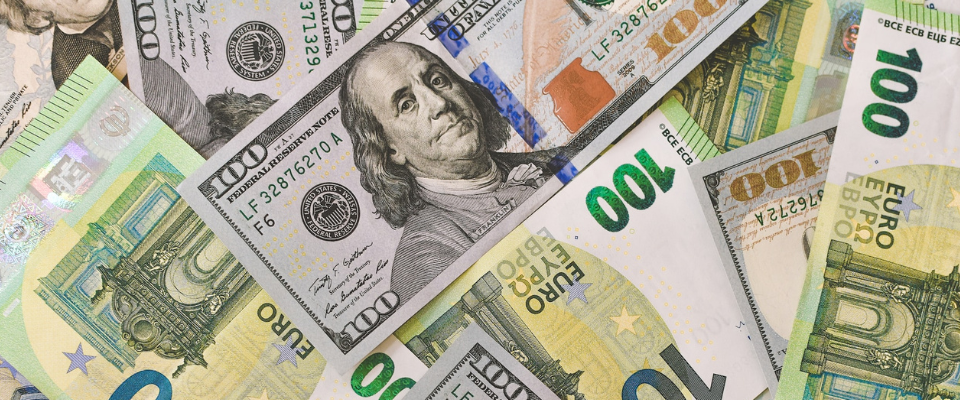
However, often these bots are not as clever as OpenAI’s. If you have ever spent 10 minutes or more cycling through robot voices that can’t solve your problems when calling a company, you understand the frustration of millions of customers every day.
This is what makes ChatGPT different. It is built to be generative at its core. This means it creates an original response every time you engage with it. However, might this be too far in the other direction?
The Limits of Open AI’s ChatGPT
Current popularly used AI models work well for doing simple tasks, but not spectacularly for more complicated problems. Experts warm that in general, AI lacks the creativity for complex problem-solving. Also, it needs to be watched closely by humans so it doesn’t produce offensive content.
After all, AI takes in countless bits of information but, so far, lacks the ability to constructively understand and process it all. Think about it, this is also a problem for humans living in the age of information overload.
While ChatGPT is capable of more creativity, this might pose some problems to businesses looking to utilize it. Ajay Agarwal, a professor at the University of Toronto whose research focuses on the economics of AI, told Forbes.
“ChatGPT is very good for coming up with new things that don’t follow a predefined script. It’s great for being creative. It’s great for asking a range of questions, but you can never count on the answer. And companies wouldn’t ever want that as how they are responding in their customer service office.”
This is something interesting to consider. Many customer queries are repetitive in nature. for example, people want passwords reset, to check their account balance, or to track the shipping of products. Questions like this may be best left to existing automation tools.
However, these simple questions account for only about 30% of customer queries. This might be why Chatbots and AI have such a widespread reputation for being more annoying than helpful. Current simple chatbots cannot handle 70% of consumer queries.
More adept and creative AI chat models could potentially address these issues.
Can AI Chatbots Be Used To Scam Customers?
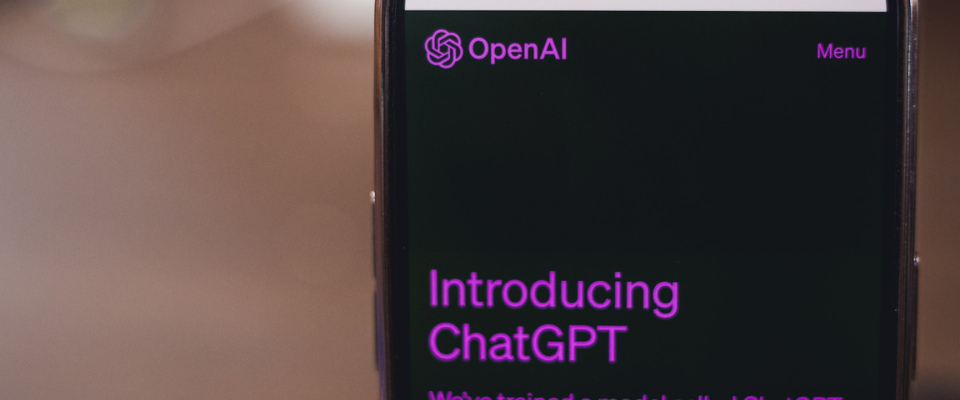
One of the major limits of all current AI chatbots, regardless of their sophistication and creativity, is that they simply aggregate and repurpose information in an entirely neutral manner.
Historically, we have seen significant issues with this. For example, Microsoft’s 2016 chatbot Tay was quickly taken down after users fed it offensive content and it repeated it.
Angel Investor Geoff Renaud who works with generative AI startups warns that AI could also be abused to potentially scam customers. This is a valid concern in an era where digital hacking and scams are on the rise in a big way.
“It opens up a Pandora’s box for scammers because you can duplicate anyone. There’s much promise and excitement but it can go so wrong so fast with misinformation and scams. There are people that are building standards, but the technology is going to proliferate too fast to keep up with it.”
Other experts echo the limits and potential pitfalls of this technology. When it comes to ChatGPT and customer service, there is still a lot to figure out.
According to Martyn Redstone, Conversation Designer and Career Coach:
I think that integrating GPT3/3.5 without any guardrails is a terrible idea. At a basic level, GPT is an algorithm that predicts the next word in a string of text. This means that it is prone to errors or outputting nonsensical or incorrect text. As a business, I would want to ensure that the information given is correct. Imagine a customer asking about your returns policy and a completely wrong answer being given.”
However, it is important to remember that all tools have potentially negative uses. Even on the most simple tools, we apply guardrails and safety measures. For example, knives have a handle.
In the case of ChatGPT, Ada CEO and co-founder Mike Murchison and co-founder David Hariri have built pre-emptive questions into their chatbots. Murchison says they guide users to ask only certain types of questions and stay on safe topics.
Final Thoughts on ChatGPT and Customer Service
It is likely only a matter of time before a new generation of chatbots has taken over more simple customer service tasks in a more widespread way. There are significant advancements developing when it comes to customer service chatbots.
However, they have already been in widespread use for some time. Over the coming years, we will really see what OpenAI’s technology can do: both the good and the bad, the innovative and the less than useful.
Are you one of the millions of new users checking out ChatGPT? If you have given it a whirl, what did you think?
Comment below.
Since 2009, we have helped create 350+ next-generation apps for startups, Fortune 500s, growing businesses, and non-profits from around the globe. Think Partner, Not Agency.
Find us on social at #MakeItApp’n®




